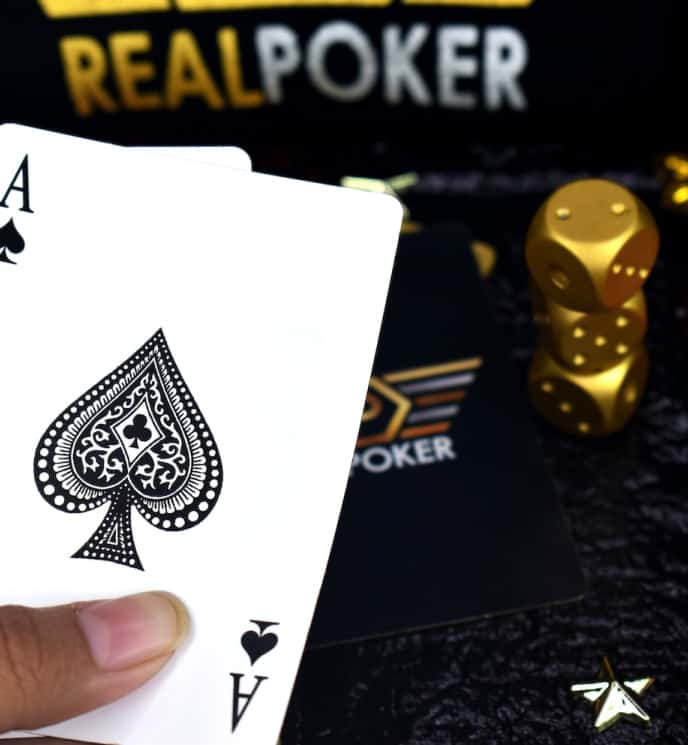Poker Hands
Before diving into the rules and strategies of different poker variations, it’s essential to understand the different poker hands. Poker hands are ranked from highest to lowest, as follows:
- Royal Flush – A, K, Q, J, 10 of the same suit
- Straight Flush – Any five cards of the same suit in numerical order
- Four of a Kind – Four cards of the same rank
- Full House – Three cards of the same rank and two cards of another rank
- Flush – Any five cards of the same suit, not in numerical order
- Straight – Any five cards in numerical order, not of the same suit
- Three of a Kind – Three cards of the same rank
- Two Pair – Two cards of one rank and two cards of another rank
- Pair – Two cards of the same rank
- High Card – The highest card in the hand when no other hand is made
Omaha Hold'em Rules
Omaha Hold’em is a community card game that is similar to Texas Hold’em. The game is played with a standard 52-card deck, and each player is dealt four cards face down, known as “hole cards.” Additionally, five community cards are dealt face up on the table.
Players must use two of their hole cards and three of the community cards to make the best possible hand. The game starts with the two players to the left of the dealer placing forced bets known as the “small blind” and “big blind”. These bets create an initial pot for players to compete for.
After the blinds are placed, each player is dealt their four hole cards. The first round of betting begins with the player to the left of the big blind. Players have three options: they can call (match the size of the big blind), raise (increase the size of the bet), or fold (give up their hand and exit the hand). Once the first round of betting is complete, three community cards are dealt face up on the table, known as the “flop.” Another round of betting begins, starting with the player to the left of the dealer.
After the second round of betting, a fourth community card is dealt face up on the table, known as the “turn.” Another round of betting begins, starting with the player to the left of the dealer. Finally, a fifth and final community card is dealt face up on the table, known as the “river.” The final round of betting begins, starting with the player to the left of the dealer.
Once all bets have been made, players reveal their hole cards, and the best possible five-card hand is formed using two of the hole cards and three of the community cards. The player with the best hand wins the pot.
What Are the Differences Between Texas Hold'em and Omaha Hold'em?
Texas Hold’em and Omaha Hold’em share many similarities. However, there are some significant differences between the two games.
One of the primary differences between Texas Hold’em and Omaha Hold’em is the number of hole cards each player receives. In Texas Hold’em, each player receives two hole cards, while in Omaha Hold’em, each player receives four hole cards. This difference in the number of hole cards dramatically affects the possible hand combinations and the complexity of the game.
Another significant difference is that in Texas Hold’em, players have the option to use one or both of their hole cards to form their best possible hand, while in Omaha Hold’em, players must use two of their hole cards and three community cards to form their best possible hand.
Omaha Hold’em Strategies
Omaha Hold’em is a game that requires both skill and strategy, and there are a few key strategies that can help you improve your chances of winning. Here are three main Omaha Hold’em strategies to help you win:
-
Be Selective with Your Starting Hands
One of the most important Omaha Hold’em strategies is to be selective with your starting hands. Because players are dealt four hole cards instead of two, there are more possible hand combinations, and many of these hands are not worth playing. Therefore, you should only play the hands that have a high chance of winning.
Good starting hands in Omaha Hold’em include hands with pairs, such as A-A-x-x or K-K-x-x, and hands with three high cards, such as A-K-Q-x or A-Q-J-x. You might consider avoiding playing hands with low pairs or cards that are not connected in any way. -
Pay Attention to the Flop
Another key Omaha Hold’em strategy is to pay attention to the flop. Because players must use two of their hole cards and three community cards to form the best possible hand, the flop can greatly impact the strength of your hand.
If the flop does not improve your hand, it may be wise to fold and wait for a better opportunity. However, if the flop does improve your hand, you should consider betting aggressively to increase the pot size and maximize your winnings. -
Understand Position and Bet Sizing
Finally, understanding position and bet sizing is crucial to success in Omaha Hold’em. In general, players in later positions have an advantage because they can see what their opponents have done before making their own decisions.
Bet sizing is also an essential component of Omaha Hold’em strategy. You should vary your bet sizing based on the strength of your hand and the board texture. For example, if you have a strong hand and the board is favorable, you should bet aggressively to increase the pot size. Conversely, if your hand is weak and the board is unfavorable, you should consider folding to minimize your losses.
In conclusion, Omaha Hold’em is a fun and challenging game that requires both skill and strategy. By being selective with your starting hands, paying attention to the flop, and understanding position and bet sizing, you can increase your chances of winning and become a successful Omaha Hold’em player. As with any form of poker, it takes practice and patience to master the game, but with dedication and hard work, anyone can become a skilled Omaha Hold’em player.
A great way to learn more, practice, and experience the real thrill of the game is by downloading the WSOP free-to-play mobile app, where you can play Omaha Hold’em, as well as other poker variants and poker tournaments – anytime, anywhere, with players from across the world.











